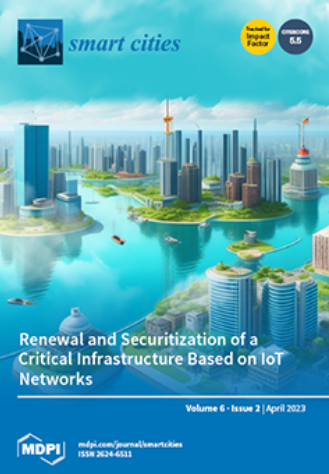智慧城市的知识管理——标准化和复制作为促进智慧城市解决方案实施的政策工具
IF 5.5
Q1 ENGINEERING, ELECTRICAL & ELECTRONIC
引用次数: 0
摘要
随着城市应对各种近期挑战,如气候变化或抵御自然灾害的能力,智慧城市的概念日益成为人们关注的焦点,以提供技术解决方案作为适当的对策。欧洲政策制定者选择系统地资助智慧城市计划,通过传播知识、数据和信息来激励和加速创新和可持续性转型。由于这项工作很复杂,因此迫切需要让有能力的利益相关者参与进来,以成功实施和运营智慧城市项目。为了确保这些倡议的传播和效力,在其中一些研究项目中采用了复制和标准化作为知识管理手段的活动。然而,在如何将标准化与复制工作结合起来方面存在知识差距。作为一个可能的答案,灯塔项目smart Together在其复制活动中积极地整合了标准化,从而制定了CEN研讨会协议17381,用于描述和评估智慧城市解决方案。对这些活动的分析产生了11个假设,这些假设显示了标准化作为复制活动的知识载体和利益相关者参与的促进者的作用。这些发现加强了已选择的和未来的政策决定。本文章由计算机程序翻译,如有差异,请以英文原文为准。
Knowledge Management for Smart Cities—Standardization and Replication as Policy Instruments to Foster the Implementation of Smart City Solutions
As cities tackle a variety of recent challenges, such as climate change or resilience against natural hazards, the concept of smart cities has increasingly moved into the spotlight to provide technological solutions as appropriate countermeasures. European policymakers chose the systematic funding of smart city initiatives to incentivize and accelerate innovation and sustainability transitions by disseminating knowledge, data, and information. As this undertaking is complex, there is a pressing need to involve and engage capable stakeholders to successfully implement and operate smart city projects. To ensure the diffusion and effectiveness of these initiatives, activities towards replication and standardization as knowledge management instruments have been applied in some of these research projects. However, there is a knowledge gap on how standardization can be combined with replication efforts. As one possible answer, the lighthouse project Smarter Together has actively integrated standardization in its replication activities, resulting in the development of the CEN Workshop Agreement 17381 for describing and assessing smart city solutions. The analysis of these activities resulted in the development of 11 assumptions, which show the role of standardization as a knowledge carrier for replication activities and as a facilitator for stakeholder engagement. These findings reinforce the chosen and future policy decisions.
求助全文
通过发布文献求助,成功后即可免费获取论文全文。
去求助
来源期刊

Smart Cities
Multiple-
CiteScore
11.20
自引率
6.20%
发文量
0
审稿时长
11 weeks
期刊介绍:
Smart Cities (ISSN 2624-6511) provides an advanced forum for the dissemination of information on the science and technology of smart cities, publishing reviews, regular research papers (articles) and communications in all areas of research concerning smart cities. Our aim is to encourage scientists to publish their experimental and theoretical results in as much detail as possible, with no restriction on the maximum length of the papers published so that all experimental results can be reproduced.
 求助内容:
求助内容: 应助结果提醒方式:
应助结果提醒方式:


